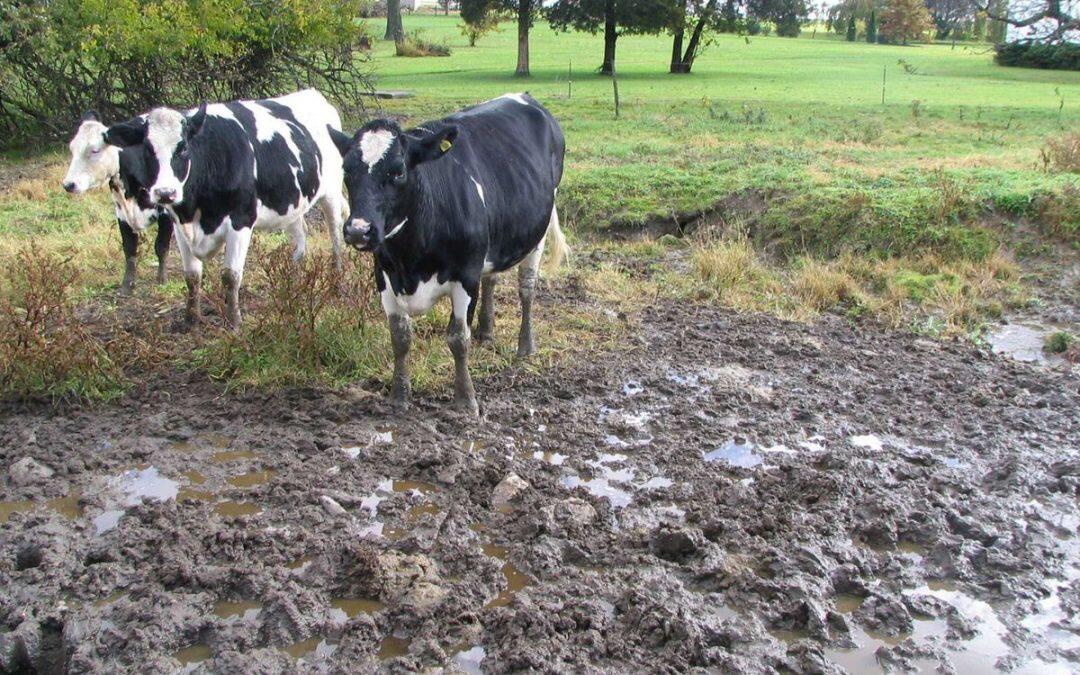For months now, farmers in Lancaster County and Pennsylvania have been warned about how much more they have to do to reduce runoff of manure and soil.
On Tuesday, state and federal officials produced the carrot to match the big stick.
Pennsylvania, the U.S. Environmental Protection Agency and the U.S. Department of Agriculture announced they will spend $28 million on aid directly to farmers as well as technical assistance specifically in southcentral Pennsylvania.
The money will help Lancaster farmers avoid potential penalties from state and federal agencies for not having some required pollution-reduction plans — farming is blamed for widespread death of aquatic life in the Chesapeake Bay, the country’s largest estuary.
The funding announcement brought immediate approval from the Maryland-based Chesapeake Bay Foundation conservation group, which champions anti-pollution efforts.
“The additional funding provided by this collaborative federal and state effort is a much-needed down payment that must lead to meaningful progress in closing Pennsylvania’s pollution reduction gap and getting it back on track toward meeting its Clean Water Blueprint goals,” said Harry Campbell, head of the foundation’s Pennsylvania office.
Federal officials have scolded Pennsylvania in recent months for being far behind in its pollution-reduction commitments.
Pennsylvania officials acknowledged being “off track” and announced a “reboot” of nutrient reduction measures.
Much of the heavy lifting will have to be done by farmers, particularly in farming-heavy southcentral counties such as Lancaster.
On-the-farm inspections
The funding boost comes as Pennsylvania launches an inspection of 2,000 farms in 37 counties in the Susquehanna River watershed to make sure they have state-required manure-management and erosion and sediment control plans in place.
Lancaster County will get 305 farm inspections — ordered by the state Department of Environmental Protection — out of the total 2,000.
So far in Lancaster County, 13 farms have been visited. Of those, seven were missing one or both of the required conservation plans.
Farmers without plans are given a 90-day extension to have them drawn up. Follow-up inspections over the next 3 to 5 years will be made to make sure on-the-farm conservation measures called for in the plans have actually been put in place.
If they are not, DEP or EPA will be notified for possible fines against farmers.
“I don’t think anyone wants that,” said Christopher Thompson of the Lancaster County Conservation District. “They’re definitely making a statement.”
Thompson said staff is urging local farmers “to pursue funding. Get in line now.”
That financial aid may now be coming.
“While some farmers are willing to install conservation practices that will reduce pollution, many are turned away every year because of a lack of resources available to assist them,” Campbell said.
“This new federal and state funding will allow more farmers in the Commonwealth to plant streamside buffers, reduce runoff from barnyards, get the required management plans, and other measures critical to the health of Pennsylvania waters and the Chesapeake Bay.”
DEP estimates as many as 70 percent of farms in Pennsylvania don’t have required management plans.
Source: Lancaster Online











